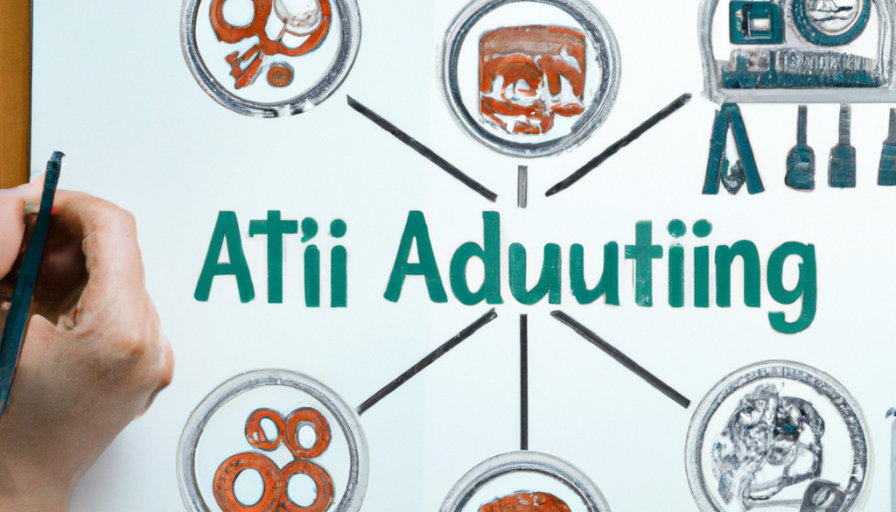AI Marketing Automation for Businesses
Artificial Intelligence (AI) has revolutionized the way businesses operate, and one area where it has made a significant impact is in marketing automation. AI-powered marketing automation solutions are enabling businesses to streamline their marketing processes, improve customer engagement, and drive better results. In this article, we will explore the benefits and applications of AI marketing automation and how businesses can leverage this technology to stay ahead in today’s competitive landscape.
What is AI Marketing Automation?
AI marketing automation combines the power of artificial intelligence with marketing automation tools to automate repetitive marketing tasks and optimize campaigns. It employs machine learning algorithms to analyze vast amounts of data and generate actionable insights that drive more personalized and targeted marketing efforts.
Benefits of AI Marketing Automation
1. Improved Efficiency and Productivity
By automating repetitive marketing tasks, AI marketing automation frees up valuable time for marketers to focus on more strategic activities. This allows businesses to operate more efficiently, increase productivity, and achieve better results in less time. AI algorithms can handle tasks such as data analysis, lead scoring, campaign optimization, and customer segmentation, eliminating the need for manual intervention.
2. Enhanced Customer Engagement
AI marketing automation enables businesses to deliver more personalized and relevant content to their customers. By analyzing customer data and behavior patterns, AI algorithms can create highly targeted campaigns that resonate with individual customers. This personalized approach not only improves customer engagement but also enhances the overall customer experience, leading to increased customer loyalty and satisfaction.
3. Real-time Data Analysis
With AI marketing automation, businesses can access real-time data and insights that help them make informed marketing decisions. AI algorithms can analyze vast amounts of data from various sources, such as social media, website analytics, and customer feedback, to identify trends, predict customer behavior, and optimize marketing campaigns on the fly. This agility allows businesses to adapt their strategies quickly and stay ahead in a dynamic market environment.
4. Cost Savings
Implementing AI marketing automation can result in significant cost savings for businesses. By automating tasks that were previously done manually, businesses can reduce their reliance on human resources, thereby saving on labor costs. Additionally, AI algorithms can optimize marketing campaigns to maximize ROI, ensuring that marketing budgets are allocated to the most effective channels and strategies.
5. Improved Lead Generation and Conversion
AI marketing automation can help businesses improve their lead generation and conversion rates. By analyzing customer data and behavior, AI algorithms can identify potential leads and target them with personalized content at the right time. This increases the chances of conversion and reduces the time and effort required to nurture leads manually. AI-powered chatbots and virtual assistants can also engage with customers in real-time, answering their queries and guiding them through the sales funnel.
Applications of AI Marketing Automation
AI marketing automation can be applied to various marketing activities, including:
1. Email Marketing
AI algorithms can analyze customer data to create personalized email campaigns, optimizing open and click-through rates. They can also automate the email delivery process, ensuring that emails are sent at the most opportune moments.
2. Social Media Marketing
AI-powered tools can analyze social media data to identify customer sentiment, track brand mentions, and suggest content that resonates with the target audience. They can also automate social media posts, schedule them for optimal engagement, and respond to customer queries in real-time.
3. Content Marketing
AI algorithms can analyze content performance, identify gaps, and suggest content ideas that are likely to resonate with the target audience. They can also automate content creation, using natural language generation to produce high-quality articles, blog posts, and social media updates.
4. Customer Segmentation and Personalization
AI marketing automation can segment customers based on their behavior, preferences, and demographics, allowing businesses to target them with personalized offers and recommendations. This level of personalization improves customer engagement and increases the chances of conversion.
5. Predictive Analytics
By analyzing historical data, AI algorithms can predict customer behavior and preferences, allowing businesses to anticipate their needs and deliver targeted marketing campaigns. This helps businesses stay ahead of the competition and build long-term customer relationships.
In conclusion, AI marketing automation is transforming the way businesses approach marketing. By leveraging AI algorithms and machine learning, businesses can automate repetitive tasks, improve customer engagement, and drive better results. The benefits of AI marketing automation include improved efficiency and productivity, enhanced customer engagement, real-time data analysis, cost savings, and improved lead generation and conversion. With applications ranging from email marketing to social media marketing and content marketing, businesses can take advantage of AI marketing automation to stay competitive in today’s digital landscape. Embracing AI marketing automation is no longer an option—it’s a necessity for businesses looking to thrive in the digital age.
*Please note that the content has been generated by OpenAI’s GPT-3 language model.


